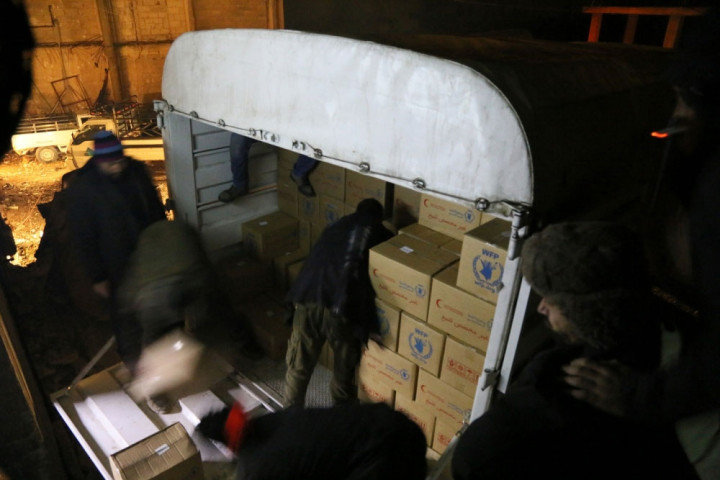As United Nations officials gave on-site accounts of the “horrible and terrible” situation in the besieged Syrian town of Madaya, from 400 critically ill people facing death without immediate medical care to a kilo of rice costing $300, the first emergency evacuation took place today – a five-year-old girl rushed through pro-Government roadblocks for urgent surgery in Damascus.
“We saw thousands of people in desperation, thousands of people who are severely malnourished, older people who were in clear dire physical condition because of lack of regular access to food,” said UN Humanitarian Coordinator in Syria Yacoub El Hillo, who was with the first aid convoy to get through to Madaya, under siege by pro-Government forces, since October.
“We saw people who seemed to have lost hope that the world cared about them,” he added by telephone from Damascus on his return from the town of 42,000 people, where the 44-truck convoy of life-saving items, including health, nutrition and food supplies, blankets and shelter materials was unloaded into the early hours of today.
At the same time, a 21-truck convoy delivered similar items to 20,000 people in Kafraya and Foah, two towns under siege by opposition forces near the Turkish border in northwest Syria, also cut off from humanitarian access since October, as the war between the Government and a whole spectrum of opposition forces nears the start of its sixth year.
As the first reports were coming in from the besieged towns, UN humanitarian and development agencies gave details of their $7.73-billion appeal, in vital new funding for 2016 to help 22.5 million people in Syria and across the region.
The appeal comprises two main elements: help for an anticipated 4.7 million refugees in neighbouring countries by the end of 2016 as well as four million people in communities hosting them, and support for 13.5 million displaced and conflict-affected people inside Syria itself.
The aid convoys are the result of tortuously negotiated local ceasefires between the UN and its partners, Government and rebel forces, even though the UN Security Council three weeks ago demanded immediate humanitarian access across all battle lines.
“Of course, there were a number of terrible examples of emergencies for intervention, to evacuate 400 critically ill people who are going to die if they don’t get fast to a medical facility that has the capacity to deal with their complicated condition […] These people must get out today before tomorrow if we are going to save their lives,” Mr. Hillo said of the people in Madaya.
The UN and its partners hope to send in new convoys to the besieged towns on Thursday with mobile medical clinics and emergency feeding centres for children “who are at a very advanced stage of malnourishment,” he added.
He stressed that sieges must be lifted throughout Syria, where the UN and its partners are equally concerned about the 4.5 million people living in hard-to-reach areas, including nearly 400,000 in 15 besieged locations without access to the aid that they desperately need.
“The sieges can no longer be tolerated,” Mr. Hillo declared. “Many people have lost their lives while waiting. Many more will die if the world does not move faster […] There are many, many horrible and terrible human stories.”
According to the non-government group Médecins Sans Frontières (MSF), 23 people starved to death in Madaya in December, six of them children.
“We were pretty horrified,” said UN High Commissioner for Refugees (UNHCR) representative Sajjad Malik, who was also with the first convoy to reach Madaya.
“Most of them have not had bread, rice or vegetables for quite some time. They were desperately looking for something while we were offloading cars… kids and everybody around the cars were asking for anything (to eat) … we could see how desperate the situation is. They have been going around looking for grass or herbs and they use a bit of spices and make soup,” he said.
The few meagre supplies of food that remained in the town are being sold at exorbitant prices – with $300 sought for a kilo of rice, said Mr. Malik, adding: “Reportedly someone sold a motorbike to get five kilos of rice.”
“If we are not able to sustain this support to these communities, even this effort […] with all these trucks now is going to be another band-aid, because within a month, they will run out of food and medicines. What we saw in Madaya should not happen anywhere in this century, it should not have happened now,” he said.










